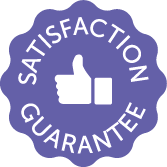Have you ever been in a room and the lights flickered off and back on so quickly you weren’t quite sure if they actually went off or if your mind was playing tricks on you? Of course you have. Did you know that the circuits in your brain can flicker on and off like that, too? They do. And you’re especially prone to it if you’re not getting enough sleep.
You might think, “Oh sure, that’s what makes me so groggy and spacey after a bad night of sleep,” but you can actually lose consciousness and not even know it. It’s called a “micro nap” or “microsleep.”
"Micro-sleep is a brief transition from wakefulness to sleep and it can last up to maybe 20 or 30 seconds," said Dr. Charles Czeisler, chief of the Division of Sleep Medicine at Brigham and Women's Hospital. "You're awake and then suddenly you're asleep." Sometimes, your eyes remain open and you continue doing what you’re doing on a sort of auto-pilot, but you're actually asleep.
And it’s far more dangerous than it sounds.
Typically it’s only a few seconds, but that’s no small matter in many situations. Nodding off during a meeting or a movie is one thing, but in many situations it could be deadly. Multiple tragic disasters have been attributed to micro naps.
In a study examining the connection between sleep deprivation and man-made catastrophes, experts concluded that, in the examples they assessed (such as the Three Mile Island and Chernobyl nuclear disasters and the explosion of the space shuttle Challenger), “[i]t cannot be proved that the human responses and errors occurring in all or most of these incidents and accidents resulted from lowered alertness, inattention, or delayed reaction due to active, sleep-related processes. Yet, it appears to be more than coincidental that the serious accidents were made worse by inadequate human response at a time when other data reflect a diminished capacity to function effectively despite one’s belief and best intentions...Sleep and sleep-related factors appear to be involved in widely disparate types of disasters.”
Even if you’re not behind the buttons and controls at NASA or a nuclear power plant, you can still be a public menace. For example, twenty percent of fatal vehicular accidents in the U.S. involve a drowsy driver.
PSA: DON’T BE A PUBLIC MENACE. GET ADEQUATE SLEEP.
And, be a responsible sleep-deprived person when you must.
- Experts say most people need seven to nine hours of sleep a night. Schedule those hours. Commit to those hours. Cutting back does you no good.
- If you’re short on sleep, avoid driving or doing anything that could potentially be dangerous – especially during the periods when microsleeps are most likely to occur – times of the day when the body is biologically programmed to sleep like pre-dawn and mid-afternoon.
- Remember that micro naps become more frequent with cumulative sleep debt. Every night you sleep less than six hours makes you a bigger menace.
"We often delude ourselves into thinking that we decide whether or not we're going to go to sleep," Czeisler said. "'I'm just going to go another 10 miles. It's only half an hour to my house.' When you build up enough sleep pressure, you automatically make that transition to go to sleep. It can happen in the blink of an eye."
Sources:
- “In the Blink of an Eye': Dozing While Driving.” ABC News, ABC News Network, 3 Dec. 2012, abcnews.go.com/Technology/blink-eye-dozing-driving/story?id=17870880.
- Mitler, Merrill M., et al. “Catastrophes, Sleep, and Public Policy: Consensus Report.” Sleep, vol. 11, no. 1, 1988, pp. 100–109., doi:10.1093/sleep/11.1.100.
- Aubrey, Allison. “Drivers Beware: Crash Rate Spikes With Every Hour Of Lost Sleep.” NPR, NPR, 6 Dec. 2016, www.npr.org/sections/health-shots/2016/12/06/504448639/drivers-beware-crash-rate-spikes-with-every-hour-of-lost-sleep.
All material on this website is provided for your information only and may not be construed as medical advice or instruction. No action or inaction should be taken based solely on the contents of this information; instead, readers should consult appropriate health professionals on any matter relating to their health and well-being.






















